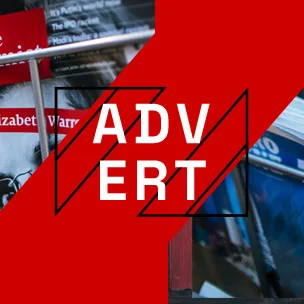Overcoming Challenges: Barriers to Employment for NEET Youth
In Montenegro, employers often hesitate to hire and protect members of the LGBTIQ community due to the homophobic and transphobic attitudes of their clients. Consequently, many young individuals belonging to this group feel compelled to conceal their identities, which can lead to significant stress and a lack of motivation.
This viewpoint was shared by Marko (identity known to the editorial team) from Podgorica. Despite his eagerness to secure a job, he frequently relies on friends and acquaintances to vouch for his work ethic, as he feels that his queerness overshadows his qualifications.
“If we opt to live openly and express ourselves authentically, being publicly noticed, or if our appearance deviates from societal standards, it often hampers our job search and retention opportunities. Employers are seldom inclined to safeguard or assist us when their clientele holds homophobic or transphobic attitudes,” stated a 22-year-old seeking employment.
He asserted that queer individuals face difficulties in securing employment, with him personally needing to prove his capabilities more than his peers.
“So far, institutions have offered me no personal support. Most assistance comes from individuals who are sympathetic and wish to help. Institutions often fall short, neglecting to prioritize inclusivity and the provision of employment opportunities for LGBT youth, allowing us to demonstrate our ability to perform specific jobs. Many of us feel we must hide aspects of our identity and adapt, which is both stressful and disheartening.”
Unwelcome activism and diverse sexual identities
The interviewee for “Vijesti” noted that it is especially challenging for queer individuals in the NEET category (those not engaged in employment, education, or training) to secure and maintain jobs, particularly when entering the job market without political or familial connections to vouch for them in public service sectors.
“During a recent job interview, I faced inquiries about my physical appearance—why I have longer hair, why I wear earrings, and how adaptable I am to the desired employee’s appearance. I informed them that I am not willing to alter my physical appearance, and as a result, I did not receive the job offer.”
He recounted being dismissed from a previous job due to his activism.
“Though my work performance did not wane, my advocacy for equal rights on social media became noticeable. After a few days, my employer expressed dissatisfaction with my work. I later learned from a friend of his who initially recommended me that I was let go because clients were voicing concerns about my sexual orientation and gender expression, which supposedly affected the company’s reputation.”
Approximately 27,000 young people are disengaged from work or training.
As of the end of 2023, over 27,000 young individuals fall into the NEET category in Montenegro.
The situational analysis “NEET youth in Montenegro,” released by the Forum for Youth and Non-Formal Education (Forum MNE), indicates that the proportion of NEET individuals within the youth population mirrors broader trends within Montenegro’s economy.
The analysis highlights a slight reduction in the NEET ratio, from 23.4% to 21% from 2015 to 2018.
“Subsequent years saw this figure rise to a peak of 26.6% of the youth population in 2020, coinciding with the economic decline triggered by the COVID-19 pandemic. In 2021, the NEET rate stabilized at 26.5%. A significant decrease was observed in 2022, a year marked by recovery in the local economy, with the NEET population representing slightly less than a quarter of the total youth demographic (23.2%), equating to about 32,200 young people aged 15 to 29,” the analysis states.
In comparison, EUROSTAT figures for 2022 reveal an average NEET rate in the EU of 11.7%, with Romania and Italy being the worst performers at 19.8% and 19%, respectively. In contrast, neighboring countries report lower NEET rates, with Croatia at 13.3% and Serbia at 15.1%, according to EUROSTAT data from 2022.
Recommendations from Forum MNE urge the government to recognize NEET youth as a distinct category in strategic documents and legislative frameworks moving forward. Enhancing the quality and accessibility of career counseling programs is vital to providing young individuals with the necessary support for critical career decisions.
NGO support exists, yet is insufficient
The non-governmental sector has established support programs for NEET youth, but they are often costly and limited to a small, select group, failing to provide a long-term remedy.
Anja Redžić from NGO Forum MNE asserts that years of commitment have yielded tangible outcomes; their programs have facilitated nine courses encompassing over 150 young participants, with 38% finding employment during or following training, and 22 developing entrepreneurial concepts.
“Despite these promising results, initiatives from the civil sector frequently encounter limited support, are temporary, and depend heavily on donations. While institutions craft plans that often stall, countless young individuals unintentionally join the NEET category—young people who are neither employed nor engaged in education or training. Institutions continue to neglect to recognize NEET youth as a priority group in strategic documents,” argues Redžić.
She contends that it appears institutions rely too heavily on civil sector initiatives and often fail to acknowledge the necessity for systemic, long-lasting support.
“In 2020, Forum MNE pioneered the first ‘one-stop shop’ employability program, correctly introducing the term NEET into the Montenegrin context. This model provides a variety of services for young people in one location, equipping them with essential knowledge and skills to enhance their competitiveness in the labor market. The program encompasses several simultaneous courses, including soft skills, digital skills, career counseling, entrepreneurship training, and employer networking through a Job Fair. However, institutional support is still lacking, which hampers the sustainability and accessibility of such programs for all young people in Montenegro. Forum MNE calls for urgent action from relevant institutions to adopt a multi-sectoral approach ensuring NEET youth receive the necessary support to empower this marginalized group in the long run, rather than relegating this responsibility solely to civil sector efforts,” she concludes.
Program director at NGO Juventas, Jovan Bojović, maintains that while civil society efforts directed at NEET youth are significant, they face numerous challenges.
“From observing activities undertaken by civil society organizations, I can confidently state that they yield positive results. For instance, through the InEET project implemented by Juventas as part of the IPA II cross-border program between Montenegro and Kosovo, 40 young individuals in Montenegro participated in a paid internship program lasting six months, with 30% continuing their engagement and gaining employment. We also conducted 20 training sessions to enhance their labor market skills and 18 retraining sessions for individuals serving prison sentences. These figures offer a window into the long-term success of our projects,” Bojović emphasizes.
He notes that collaboration between the civil and state sectors aimed at reducing the NEET rates exists but is often limited and could be enhanced.
This text was created within the project “Inclusive Progress Towards EU Integration – Empowerment of Civil Society for Effective Contribution to the Inclusive Development of Local Communities,” financed by the European Union and the Ministry of Public Administration of Montenegro, and implemented by the Forum MNE and the Center for Youth Education. The opinions expressed in this text are solely those of the MNE Forum and do not represent the views of the European Union or the Ministry of Public Administration of Montenegro.


